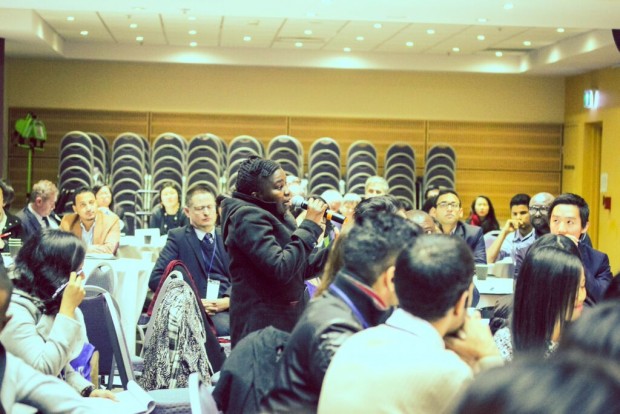CISA Conference 2015 Day 2: Improvement of student experience under spotlight
THE recent release of the Australian Government’s Draft National Strategy for International Education reignited conversations on student experience, as students voiced their concerns and frustrations on issues such as employability, cost of living and public transport. Allan Tanoemarga reports.
As one of the most popular study destinations around the world, it is in Australia’s interest to offer the best study experience for international students during their stay in the country.
Unfortunately, a recent survey run by the Council of International Students Australia (CISA) has revealed some noteworthy dissatisfaction from the national peak body for overseas students.
Among the 921 respondents of the survey, 67 per cent felt the Australian government had not done enough to give back to the international student community.
These results, which were announced early on the second day of the CISA Conference, provided the backdrop for panel speakers throughout the day.
The issues were certainly not new – from employability and high living expenses to the cost of public transport.
The first panel of the day consisted of representatives from education institutions and industry bodies across Australia: the University of Queensland, Universities Australia (UA), International Education Association of Australia (IEAA), International Education Association of Australia (ISANA), TAFE Directors Australia, Australian Council for Private Education and Training (ACPET) and English Australia.
Related story: Australian government releases Draft National Strategy for International Education
The panel acknowledged students’ concerns but said lobbying, and in turn creating change, would take time. To reassure students however, the panel said it was trying to do its best to listen to students and channel that voice to relevant industry stakeholders.
Despite this assurance, a large number of student delegates appeared dissatisfied with the response, and hand after hand were raised as students were eager to voice their concerns during the Q&A that followed.
Some delegates questioned the return on investment they were receiving from their studies, lamenting that the amount of money and time invested studying in Australia far outweighed job opportunities in Australia – especially apparent as many companies only accept job applicants with permanent residence or Australian citizenship.
Another delegate said employers should hire students based only on their skills and be indifferent to their nationalities.
Updates on policy
The State Government panel provided delegates an update on state policies and strategies to improve international student engagement, and addressed some concerns left unanswered from the previous session.
Differences in regional laws under the federal system means each state can deliver a unique service to enhance international students’ study experience. In the Northern Territory, for instance, Mark Darby of Northern Territory International Education and Training Hub ensured that steps had been taken to ensure international students have no trouble gaining work experience or employment.
In Victoria, the State Government has injected considerable funding to provide an range of programs to benefit international students. They include Study Melbourne, various support groups as well as an upcoming consultation initiative.
Other issues
Accommodation
Wendy Stone from Swinburne University acknowledged the problems with international students renting a property on a private market.
“The housing and accommodation of [most] students, to a large degree, is beyond the control of education institution,” she said.
She believed this lack of control could potentially lead students to be “vulnerable to exploitation” by the landlords.
To prevent this from happening, Cindy Nguyen from Consumer Affairs Victoria (CAV) said it was important for students gain better knowledge about their rights as a tenant. She encouraged them to make use of CAV’s smartphone app RentRight, which provides tools and information to help students manage their rental properly.
English language skills and employability
Finally, to increase the likelihood of international graduates’ employability in the Australian workforce, Catherine Gomes from RMIT University and Paula Vigorelli from IDP Education both agreed that students should focus on developing their English proficiency over the course of their study.
According to them, some of the most practical steps involve having a strong motivation, high self-confidence and the willingness to use and practice English outside of the classroom. The success of these steps had been demonstrated by academic case studies conducted in the recent decade.
One participant named Carlos for instance, experienced an increase in his IELTS score after throwing himself into a work field that forced him to speak English all the time, while at the same time seeking his university’s academic service to help with his writing.

